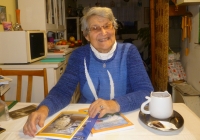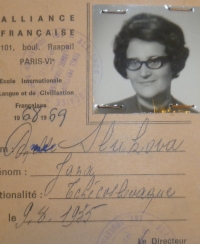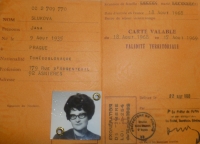She learned about the occupation from a Parisian newspaper and chose to return instead of emigrating

Download image
Jana Stehlíková was born on August 9, 1935 in Prague, and she spent her childhood with her grandparents in Horní Počernice. The mother owned a millinery in Prague and commuted to her daughter. She graduated from a secondary pedagogical school, worked as an educator or a pioneer leader, and since 1960 she has been a primary school teacher. On August 18, 1968, she went on a one-year study visit to Paris, and learned about the occupation from the newspapers. She refused to emigrate and returned to Prague half a year earlier. She and her second husband raised two sons and moved to Batelov in the Vysočina region. After her husband’s death in 2007, she began writing. In 2019, she was preparing a book about her friend, a graphic artist and a painter Ludmila Jiřincová, and she still lived in her house in Batelov.


